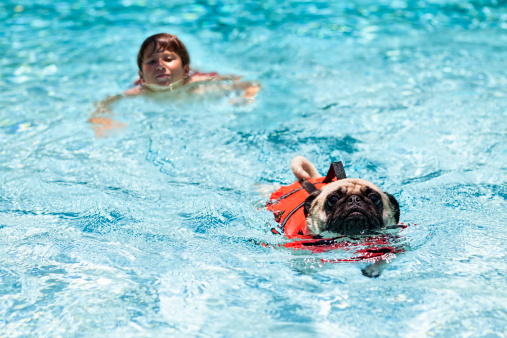Being a lifeguard, besides being a very important job, it’s a lifestyle. Lifeguards are responsible for keeping people safe while they enjoy the water. The job requires excellent swimming skills, physical fitness, and a keen sense of awareness.
In this article, we will take a closer look at the everyday life of a lifeguard.
Early Mornings and Preparation
Lifeguards typically start their day early in the morning. They arrive at their workplace, which can be a pool, a beach, or a water park, well before it opens to the public. This gives them time to prepare for the day ahead.
The first thing on a lifeguard’s agenda is to check the equipment. They make sure that all rescue equipment, such as rescue tubes, first aid kits, and defibrillators, are in good working order. They also inspect the pool or beach area to ensure that everything is safe for swimmers.
In need of lifeguard services in Singapore? Swimwerks offers professional lifeguard services to ensure the safety and well-being of swimmers, whether at pools, beaches, or events.
Lifeguard training and Certification
Lifeguard training is a critical component of becoming a lifeguard. Lifeguard classes are usually conducted by the American Lifeguard Association, and the courses cover a range of topics, including water safety, rescue techniques, and first aid.
Lifeguard certification is also necessary, and this involves passing a series of tests to demonstrate proficiency in various skills. These tests typically include swimming a certain distance in a specified time, rescuing a drowning victim, and performing CPR. Lifeguard certification California must be renewed every two years.
On Duty
Once the lifeguard has completed their preparation, it’s time to get on duty. Lifeguards usually work in teams, and they take turns watching over the water. They scan the water constantly, looking for any signs of trouble. If they spot someone in distress, they blow their whistle to get the attention of their fellow lifeguards and spring into action.
Lifeguards are trained to respond quickly and efficiently to emergencies. They use a variety of techniques to rescue people in distress, including swimming out to them, using a rescue tube, or using a floatation device.
Lifeguards are also trained in first aid and CPR for handling emergencies in water. They are ready to provide immediate assistance to anyone who needs it. If someone is injured, the lifeguard will provide first aid, and if necessary, call for an ambulance.
Interacting with the Public
Lifeguards have an essential role in educating the public about water safety. They interact with swimmers of all ages, from young children to seniors, and they provide guidance on how to stay safe in the water.
Lifeguards also need to be good communicators. They provide information to the public about pool rules and regulations, such as no running, no diving in shallow water, and no glass containers. They also need to be able to communicate effectively with people who may be panicked or in distress.
Challenges Faced by Lifeguards
Being a lifeguard is not an easy job. Lifeguards face a range of challenges every day. Some of the most common challenges include:
- Dealing with difficult people: Lifeguards need to be able to handle difficult people who may not follow pool rules or who may become aggressive.
- Responding to emergencies: Lifeguards need to be able to respond quickly and effectively to emergencies, which can be stressful and emotionally challenging.
- Staying vigilant: Lifeguards need to stay alert and focused at all times, which can be mentally and physically exhausting.
- Dealing with weather conditions: Lifeguards need to be prepared to work in a variety of weather conditions, from hot and sunny to cold and rainy.
The Rewards of Being a Lifeguard
Despite the challenges, being a lifeguard is an incredibly rewarding job. Lifeguards play an essential role in keeping people safe in the water. They have the satisfaction of knowing that they have saved someone’s life or prevented an accident from happening is priceless. Lifeguards also get to work in a fun and exciting environment, where they get to interact with people from all walks of life.
Lifeguarding also provides an opportunity for personal growth. Lifeguards develop a range of skills, including communication, teamwork, leadership, and problem-solving. They learn to stay calm under pressure and to make quick decisions in a crisis.
In addition to these personal benefits, lifeguarding can also lead to a career in the aquatic industry. Many lifeguards go on to become swim coaches, swim instructors, pool managers, or aquatics directors.
An Overview of a lifeguard challenges
Being a lifeguard is not just a job; it’s a calling. Lifeguards are responsible for keeping people safe in the water and are trained to respond quickly and efficiently to emergencies. Lifeguard training USA and certification are essential components of becoming a lifeguard, and lifeguards must stay vigilant and alert at all times.
Despite the challenges, being a lifeguard is an incredibly rewarding job. Lifeguards get to work in a fun and exciting environment and have an opportunity for personal growth and career development. If you’re interested in becoming a lifeguard, consider taking lifeguard classes and getting certified by the American Lifeguard Association. With the right training, dedication, and commitment, you can become a lifeguard and help keep people safe in the water.









